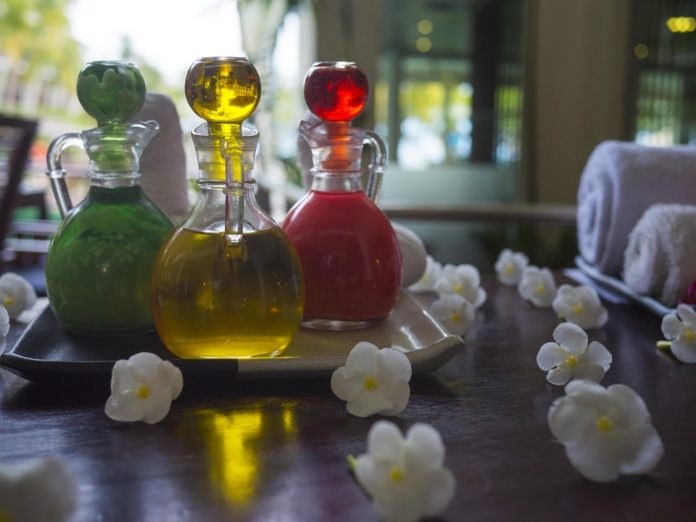From floral perfume to fruity body wash and shampoos, scents heavily influence consumer purchases. Whenever consumers take a shower, they want their friends and loved ones to notice whatever scent they are wearing. This is why consumers are willing to spend a lot of money on these products but many are left dissatisfied and disappointed because the scent doesn’t even last the average time of a commute.
But for most, the smell doesn’t last long after showering before it fades away. Thus, scientists have now developed an approach to get those scents to adhere to the skin longer as opposed to washing down the deplete instantly in the wake of being connected.
Martin S. Vethamuthu, Ph.D., said, “Companies incorporate a lot of fragrance oils in wash-off products, such as face washes and body scrubs, but the majority of these oils get washed away. My research team of solvers wants to help other companies amplify the efficacy, add to the allure and ensure the integrity of the retention of these fragrance notes in their products for skin and hair.”
“The goal of this research is to increase the efficiency of the fragrance oils. Fragrance oils are expensive, and maintaining a scent is a complex process. “To build a scent profile in a body wash, it is a creative and artistic process of blending the fragrances. There are three categories, the top note, middle note, and base note. Each of these has a purpose, and some scents are meant to evaporate during the shower while others are meant to remain on the skin even after toweling off. These factors play a critical role in determining whether a consumer will repurchase a product.”
Scientists used panels of people with an exceptional sense of smell to develop fragrance profiles. They also adjusted a gadget known as the twister bar headspace sorption extraction sensor, usually utilized as a part of the sustenance business to identify chemicals that could add to off-flavors or fragrances.
The sensor ingests follow measures of unpredictable scents kept on the skin after a shower. Joined with gas chromatography-mass spectrometry, the group can accumulate a profile of the fragrances that stay on the skin in the wake of flushing off. At that point, scent evaluators are just acquired at the last advance to approve and confirm the outcomes.
“Polymers impact different fragrances in diverse ways,” he says. “By studying synthetic and naturally derived polymers, manufacturers can select the types of polymers they want to use that will correspond with the fragrance notes they want to prevail.” Vethamuthu’s group used the sensor to assess which fragrances still lingered on the skin several hours after the scents were applied.
“It’s a difficult process because many manufacturers do not want to share their perfume formulas in detail,” Vethamuthu states. “If you don’t know what to look for going in, then you will never be able to determine which polymers would work best.”
Thus, he works closely with the manufacturers to pry as much information from them as he can. If he knows the precise perfume formula, he can tailor the polymers for the manufacturer. Increasing the retention can mean that manufacturers won’t need to add as much fragrance oil, which could lead to lower costs for both the industry and consumers.
